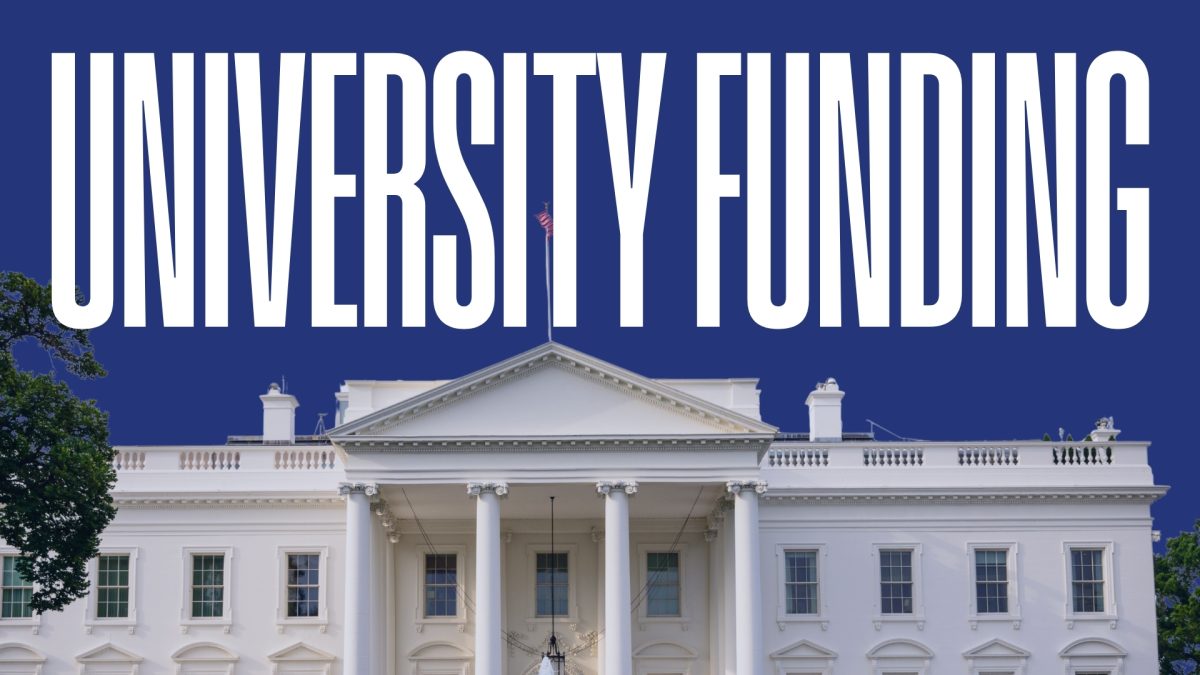After months of hearing about how the government is withholding federal funding from some universities, recent headlines are showing some promising developments for those who hold the largest stakes in having funding returned. Affected students, professors, faculty and administrators at the universities in question can now sigh a breath of relief knowing that federal funds will be returning.
Since the start of the year, schools like the University of California, Los Angeles, Utah State University, Harvard, Columbia, the University of Pennsylvania and others have seen their federal funding cut for a multitude of reasons, which align with the platform President Donald Trump was elected on. When the government began to cut funding from schools earlier this year, outrage from some groups was more than apparent. The American Council on Education stated on their website that they “strongly oppose the Trump administration’s decision to cancel $400 million in federal grants and contracts to Columbia University.”
The Association of American Universities echoed this, saying in their own release that “recent administration actions could destroy our global scientific leadership.” The group added that “Massive cuts to research funding and other administration policies are putting the longstanding partnership between U.S. universities and the federal government at serious risk.”
Despite criticism of the government’s actions, it is more than reasonable to assume that researchers or heads of programs that are dependent on funding are thrilled that it will be returning. However, the baseline for why there are now feelings of relief is due to agreements that have been made between the White House and, specifically, some of the country’s most elite institutions.
In the case of Columbia University, administrators struck a deal to pay the United States government “$200 million to settle claims related to discriminatory practices.” An additional $20 million of the settlement is stated to be distributed to “resolve alleged civil rights violations against Jewish Columbia employees that occurred on its campus following the October 7, 2023, Hamas terror attacks.”
Aside from the monetary aspect of the settlement, Columbia is now committed through the agreement to ensure “privacy, dignity, and fairness in women’s sports.” Administrators will now also be focused on fostering “new faculty appointments to promote intellectual diversity.” Even aspects of student safety are covered in the Columbia deal, as the university will “enhance its campus safety” through measures like prohibiting masked protests, maintaining its own on-campus security department and cooperating with the NYPD. Other aspects of the agreement will be monitored in the future by an “independent Resolution Monitor and an Administrator.”
In a similar deal recently struck between the government and the University of Pennsylvania, the institution had to recommit to ensuring Title IX compliance. In a Department of Education release about what the university is expected to do following the agreement, the government has made it clear that the settlement focuses on the Trump administration’s interpretation of Title IX compliance; mainly concerning the university’s definitions of male and female, requesting that the university adopt “biology-based definitions.” However, for Brown University the price tag of their deal is one-quarter of Columbia’s, as the school will be paying out $50 million over the next 10 years. This amount will specifically go to “state workforce development organizations that comply with anti-discrimination laws, supporting regional economic growth and career opportunities.”
While Brown’s deal goes a distance that Columbia’s doesn’t, with one example being how the university will be “adopting definitions of ‘male’ and ‘female’ from President Trump’s Executive Order 14168,” there is an aspect of Brown’s deal that is identical to Columbia’s.
In the White House’s statements about both Columbia and Brown’s settlements, each includes a line that reads: “The agreement ensures Brown will not engage in unlawful racial discrimination in admissions or university programming. Brown will provide access to all relevant data and information to rigorously assess compliance with its commitment to merit-based admissions.”
Each page from the White House report also states that the settlements “restore fairness, merit, and safety in higher education.”
With these two similarities alone, there’s no need to debate over what the government sees as its own gains from the settlements. However, it’s also very easy to consider that on the university side, there is a different perspective. Harvard University is a very good example of this.
Unlike other institutions that have already struck a deal, Harvard chose not to play ball with the government. Instead, they chose to position themselves differently from how other universities did to gain back their own funding.
When $2.6 billion was cut in research funding at Harvard, the school immediately deemed the action illegal. Not only is the school actively pursuing a legal fight against the government over the cuts, but Harvard’s attorneys also stated in response to the cuts that the school is being targeted over issues that they’d resolved. A letter sent to the government in April by Harvard’s attorneys stated that the government’s demands are “in contravention of the First Amendment,” and “invade university freedoms long recognized by the Supreme Court.” In response, Trump called for the university to agree to a $500 million settlement.
While you cannot speculate too much about a legal fight, and cannot say anything for sure until a judge rules or a settlement is reached, one bet you can make is that funding will return to Harvard, the same as it did with Columbia, the University of Pennsylvania and Brown.
The Trump administration has made one thing clear: Federal funding for programs can return, but universities need to compromise. Critics who want funding to return are right, and there’s no reason it shouldn’t return. Everything comes with costs, and universities should realize this and mitigate their own costs that directly affect employees or researchers who are dependent on funding.
Michael Duke, GSB ‘26, is a business administration major from Scottsdale, Arizona.










































































































































































































